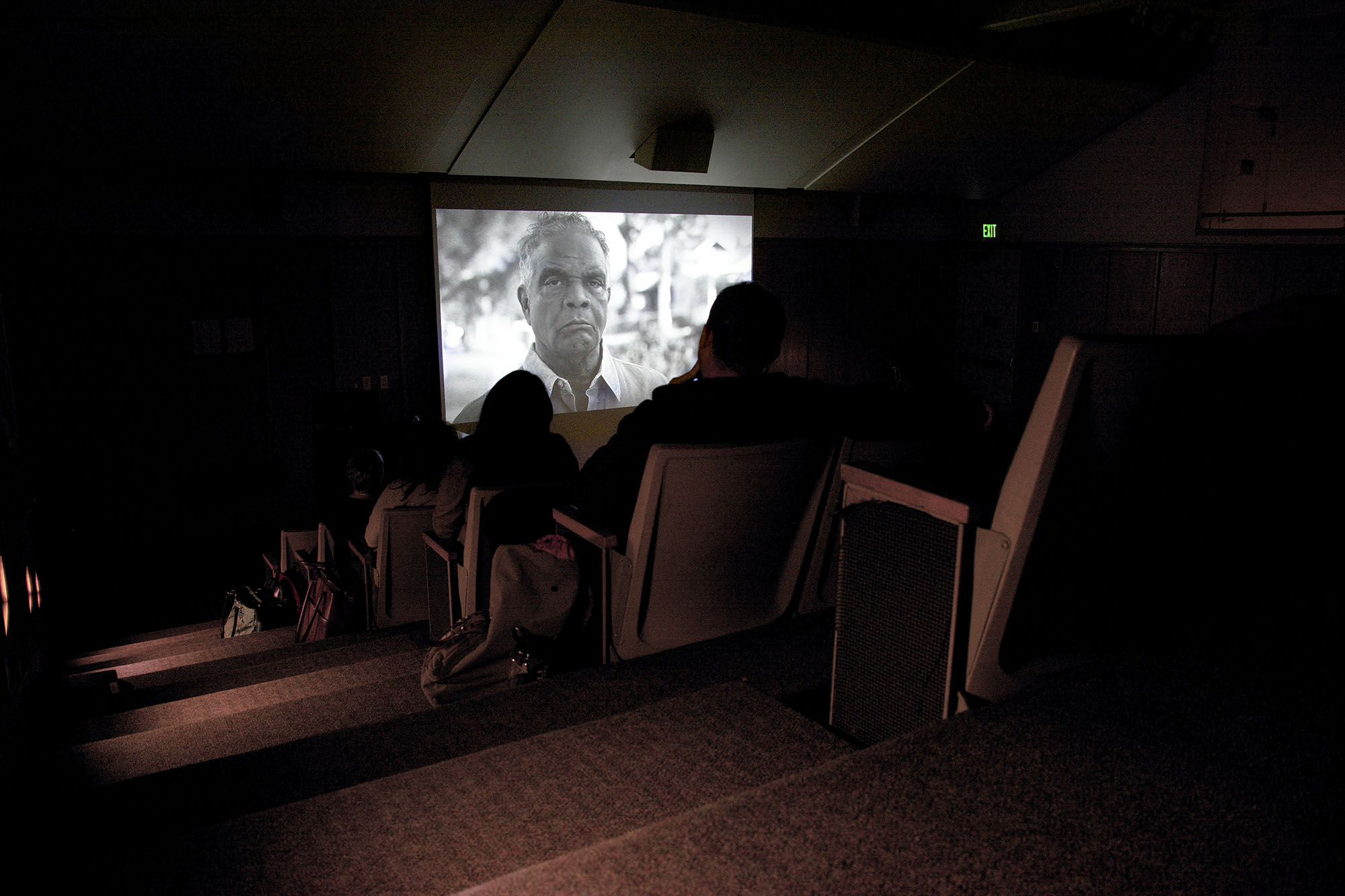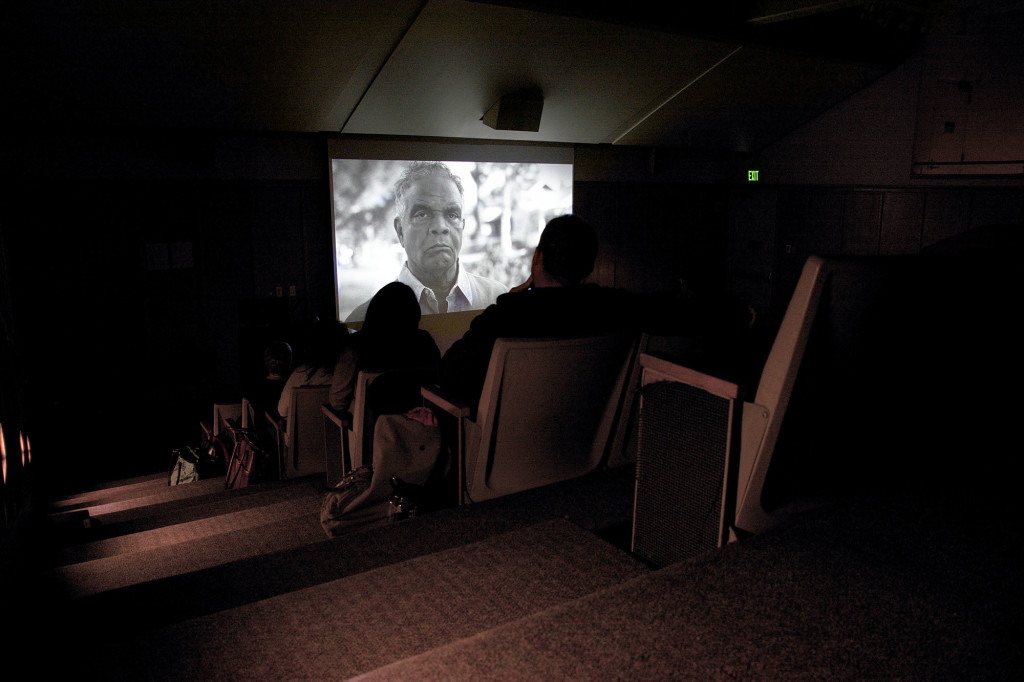Some argue that the battle for the right to vote ended in 1965 when the Voting Rights Act was established. But now the larger question lingers of whether voting still matters.

During the Teaching Voting Rights Act symposium attendees participated in many events to learn about voting history, which included a film on the history of African American voting rights.
Director for the Poverty Education Center and assistant professor at the Matteo Ricci College Emily Lieb helped answer this question for Seattle University students and community members alike at the ‘Teaching the Voting Rights Act: A Symposium,’ an interactive event held in Wyckoff Auditorium on Saturday, Jan. 23.
In the opening conversation about the Voting Rights Act, lawyer-activist-scholar Nicholas Price and moderator Mary Lynn Veden joined Lieb. The three speakers used the breakout session to discuss why the act still matters. Much weight was placed on the shift in focus from achieving the right to vote to the current value of the vote.
“Does [the Voting Rights Act now] give you access to vote or the access to political power?” Lieb said.
Price then followed up the discussion with a brief history of the Voting Rights Act and the 1964 Civil Rights Act. He suggested that current circumstances like poverty and social change can only be altered by continuing to exercise our right to vote.
“The fight isn’t over,” Price said. “[Voting] is the core mechanism to change power.”
The symposium aimed to educate people by encouraging them to set aside their own experiences and consider those who are negatively affected by current laws.
The speakers unanimously agreed that Washington state voting rights are still incredibly contentious. They referenced the recent case of Montes v. City of Yakima, in which a lawsuit was filed by the American Civil Liberties Union to contend that Yakima’s election system prevented Latinos—who make up about a third of the city’s population—from effectively participating in elections.
The keynote speaker for the event was Maureen Costello, director of the Southern Poverty Law Center’s Teaching Tolerance project. The project combats prejudice among U.S. youth while promoting equality, inclusiveness and equitable learning environments in the classroom.
Costello began her talk by describing all the factors that have enabled her to be a habitual voter and engaged citizen. By mentioning details such as having two forms of identification and being able to speak and read English, she was able to outline all the troubling elements that kept people from voting.
Costello identified the shifting opinion of the government from the time period she grew up in to our current generation “In my time, government was seen as a force of good,” Costello said.
There is now a blatant distrust of government that permeates our society. According to Costello, anger toward the profound sense of injustice is not enough to sustain people against the discouragement that voting, and the subsequent disappointment at the turnout of said voting, will bring.
Although voter apathy and declining civic engagement are key causes that lead to lousy voter turnout, Costello affirmed that the real issue is institutional.
“We have allowed economic power to influence political power,” Costello said. “People need to be able to vote because they want to change something.”
The solution, Costello said, lies in focusing on the students and children of today. She said that influencing their view in government, giving them motivation and sense of agency is crucial in combating the cynical view society has adopted.
Creating a school environment that is culturally responsive, student-centered, and that acknowledges kids’ reality all the while allowing their voices to be heard will effectively teach and empower the students of today.
“We have to teach that government isn’t ‘over there.’ We the people—that’s the government,” Costello said. “We have a tremendous burden as teachers.We are going to arouse the conscience of the nation.”
The film “Selma: The Bridge to the Ballot” was screened after Costello’s captivating talk, focusing on the viewpoint of students in the march from Selma to Montgomery in the 1960’s, reinforcing the power that is held in the younger generation.
The event then ended with workshops that helped teachers adopt the Teaching Tolerance’s Anti-bias Framework, detailing learning outcomes divided into four main domains: identity, diversity, justice and action. This framework is meant to address the K-12 curriculum and aid in improving the conditions of under-represented groups and challenging inequality directly.
“I think it’s important to let yourself be reminded of the past and all the achievements we had,” said junior humanities for teaching major Craig Jaffe. “The symposium did just that. Being reminded helps shape our future and where we’re going.”
Vikki can be reached at
[email protected].












